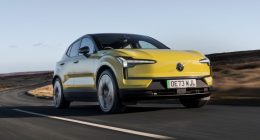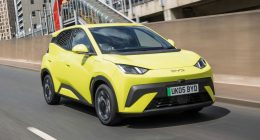Irish Tarmac Championship officials may have come up just short in their efforts to introduce a control fuel prior to the start of the new season but they insist it’s “only a matter of time” before it happens.
The cross-border competition is one of the few remaining in Europe that does not have an official fuel supplier; in contrast, the British Rally Championship has had one in place for more than a decade now.
The idea was first raised by Irish Tarmac Championship Manager Paddy Flanagan with international crews last November, and although the general consensus was broadly positive, there was not enough time to complete a tender process and have a fuel supplier in place for last week’s opener in Galway.
“It was all a bit last minute to be fair and time was against us so we had to stop and communicate that to the crews that would have been affected by the change,” said Flanagan.
“I was also worried that a number of competitors would already have had deals in place with their own fuel suppliers, so it really wouldn’t have been fair to have landed something like this on them so close to Galway.”
A control fuel levels the playing field because it contains the same elements and therefore eliminates the need for as many random samples to be taken out of cars and analysed, as is currently the case.
“It hasn’t happened now but it is only a matter of time. It will happen,” said Flanagan. “The crews have been largely in favour of the idea and I would like to have this in place for 2023 come September. We see how it has worked in the British Championship so I can’t see why it wouldn’t work over here.”
Those crews who advocate a control fuel include Alastair Fisher who believes it would bunch up cars in the international field. “It is certainly something that I would be in support of, definitely,” he said.
“I think if you want to go rallying you have to make compromises as a competitor, you have to abide by the regulations. It’s just one of those things and I believe there is mileage in the control fuel idea.”
The one potential downside 2018 Tarmac champion Josh Moffett has identified is the added cost that a control fuel introduces for competitors. “It’s a good idea if the price is right,” he said, “but that’s not the case unfortunately. It would add €1.50 to the price of a litre of fuel which, I think, is a joke.”
Another issue raised by Jonathan Greer was fuelling zones – a tightly governed area where cars are refuelled. “I don’t have strong feelings either way, although I don’t think it is a bad thing as long as the fuel supplier is willing to pump the fuel at events like they do in the British Championship,” he said.









